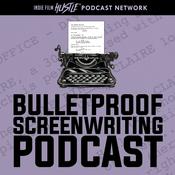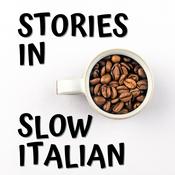Bulletproof Screenwriting™ Podcast
Bulletproof Screenwriting

Último episodio
557 episodios
- David Feinman shares how cinematic storytelling can be used to build successful businesses and viral experiences. From creating Zombie Run—a nationwide immersive event inspired by zombie films—to founding Viral Idea Marketing, David explains how understanding narrative, pacing, and emotion allows content to cut through digital noise. His approach treats marketing like filmmaking, where suspense, structure, and audience engagement matter more than traditional advertising tactics.
The conversation also explores what “going viral” really means, emphasizing shareability over view counts. David discusses the importance of professionalism, attention to detail, and designing content specifically for social platforms. His journey offers filmmakers and creatives a practical blueprint for turning storytelling skills into sustainable careers by blending creativity with strategy in the modern media landscape.
Become a supporter of this podcast: https://www.spreaker.com/podcast/bulletproof-screenwriting-podcast--2881148/support. - Charmane Star shares her unexpected journey from a small role in Black Dynamite to discovering a deep passion for independent filmmaking. What began as a routine booking evolved into a Sundance Film Festival premiere and a Sony Pictures acquisition, introducing her to the collaborative and global nature of indie cinema. Through international screenings, she gained firsthand insight into how cultural context shapes audience reactions and why universal storytelling matters.
The conversation also explores her work in indie horror and thriller films like Face of Evil and Catch 22, where she embraced physically and emotionally demanding roles. From zombie makeup and night shoots to intense character preparation, Charmane reflects on growth, reinvention, and balancing career with personal life. Her story is a reminder that creative paths don’t have to be linear—and that staying open to change can lead to powerful new chapters.
Become a supporter of this podcast: https://www.spreaker.com/podcast/bulletproof-screenwriting-podcast--2881148/support. - Melanie Wise, a former model and actress, discusses her transition to producing due to height-related challenges in acting. She produced the horror action film "Hannah's Gift," which she also starred in, and faced issues with lost masters and ineffective editors.
Wise co-founded the Artemis Film Festival to showcase women in action roles, highlighting historical female contributions and contemporary achievements. The festival, fan-backed and media-partnered, aims to prove the marketability of women in action films. Wise also discusses the potential of VR technology and its impact on storytelling.
Become a supporter of this podcast: https://www.spreaker.com/podcast/bulletproof-screenwriting-podcast--2881148/support. BPS 456: The New Rules of Indie Filmmaking No One Is Teaching with the Jalbert Brothers
29/1/2026 | 1 h 2 minThe Jalbert Brothers share how they built their filmmaking careers by embracing low budgets, consistent output, and hands-on learning. Rather than waiting for funding or studio approval, they focused on making films with minimal resources, sometimes for as little as $1,000. Each project became a practical lesson in storytelling, directing, editing, and problem-solving, allowing them to sharpen their skills faster than traditional development paths.
The conversation highlights the importance of momentum, repetition, and audience awareness in today’s film industry. By treating filmmaking as both a creative and strategic endeavor, the Jalbert Brothers have learned to use social media and digital platforms as powerful tools for distribution and growth. Their journey proves that success in modern filmmaking comes from action, adaptability, and the courage to keep creating — no matter the budget.
Become a supporter of this podcast: https://www.spreaker.com/podcast/bulletproof-screenwriting-podcast--2881148/support.BPS 455: How to Turn a Script Into a Movie Without Hollywood’s Help with Chris Jay
22/1/2026 | 1 h 19 minChris Jay, once a touring musician with the rock band Army of Freshmen, found a new creative path when the music industry shifted and opportunities dried up. Instead of giving up, he and his bandmate Aaron Goldberg turned to filmmaking, writing and producing their first feature, The Bet. Without studio backing or formal film education, the duo learned everything from scratch — from writing the screenplay to formatting scripts manually and raising money independently. Their story became a lesson in perseverance, proving that filmmaking success often starts with resourcefulness and a willingness to learn by doing.
Despite budget limitations and countless challenges during production, The Bet made it to completion and secured distribution on major platforms like iTunes, Amazon, and cable VOD. Featuring wrestling legend Roddy Piper in one of his final roles, the film stands as a testament to the power of determination and creative problem-solving. For Chris, the project wasn’t just about making a movie — it was about proving that great stories can come to life outside of Hollywood when passion, teamwork, and persistence lead the way.
Become a supporter of this podcast: https://www.spreaker.com/podcast/bulletproof-screenwriting-podcast--2881148/support.
Más podcasts de Educación
Podcasts a la moda de Educación
Acerca de Bulletproof Screenwriting™ Podcast
The Bulletproof Screenwriting Podcast shows you how to make your screenplays bulletproof. Weekly interviews with Oscar® and Emmy® award winning screenwriters, story specialists, best-selling authors, Hollywood agents and managers, and industry insiders. We cover every aspect of the screenwriting process. This is the screenwriting podcast for the rest of us. No fluff. No BS. Just straight talk that will help you on your screenwriting journey.Some of the past guests include 3X Oscar® Winning Writer/Director Oliver Stone, Eric Roth (Dune, Forest Gump), Edgar Wright (Shaun of the Dead), Richard Linklater (Boyhood, Slacker) James V. Hart (Dracula, Hook), John August (Big Fish, Aladdin), Jim Uhls ( Fight Club), Peter Rader (Waterworld), Diane Drake (What Women Want), Daniel Knauf (Carnival, Blacklist), Derek Kolstad (John Wick) and Pen Densham (Robin Hood, Backdraft) to name a few.Become a supporter of this podcast: https://www.spreaker.com/podcast/bulletproof-screenwriting-podcast--2881148/support.
Sitio web del podcastEscucha Bulletproof Screenwriting™ Podcast, BBVA Aprendemos juntos y muchos más podcasts de todo el mundo con la aplicación de radio.net

Descarga la app gratuita: radio.net
- Añadir radios y podcasts a favoritos
- Transmisión por Wi-Fi y Bluetooth
- Carplay & Android Auto compatible
- Muchas otras funciones de la app
Descarga la app gratuita: radio.net
- Añadir radios y podcasts a favoritos
- Transmisión por Wi-Fi y Bluetooth
- Carplay & Android Auto compatible
- Muchas otras funciones de la app


Bulletproof Screenwriting™ Podcast
Escanea el código,
Descarga la app,
Escucha.
Descarga la app,
Escucha.

































